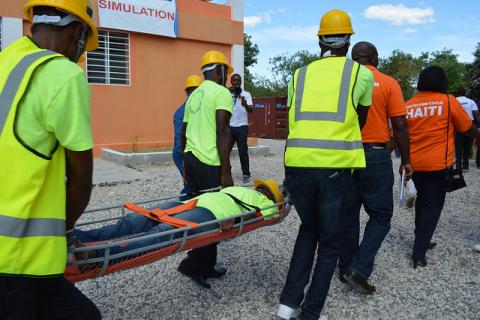Filling the gaps in preparedness plans

Preparedness is a key strategic element of an effective response to health threats. However, despite evident improvements in recent years, there is still large evidence of ineffective management of epidemic and pandemic events at any level, as the Ebola outbreak in West Africa recently showed. A great issue that come together with a deep lack of knowledge on how to make preparedness plan effective. This was the main topic discussed during the meeting organized in Stockholm this February by the European Centre for Disease Prevention and Control (ECDC). Aims of the event were to identify key knowledge gaps in infectious disease preparedness in Europe, and to identify strategies to promote interactions between research and practitioner communities to begin to address these gaps.
A wide range of top-level experts from different disciplines participated to the meeting: public health officials, epidemiologist, sociologist, anthropologist, crisis managers from a number of excellent research centres, opinion leaders, and ECDC stakeholders and staff members. Together they discussed about national policies on preparedness, innovative surveillance systems, and national organizations and policies to respond to epidemic threats. They identified some of the gaps in preparedness and risk assessment, and proposed some tools that could be used to fix them, like simulation exercises, adoption of risk Hazard evaluation approach and platform to share national preparedness plans.
ASSET project, and its predecessor TELLME, were represented at the meeting and their contribution was focused on the infected/affected approach as a fundamental element for an effective response. During an infectious disease outbreak, only a small fraction of the population become infected. However, the large remaining of the population, even though not infected, may still be heavily affected by the outbreak, due to a series of issues like schools closure, market losses or travel limitations. A proper preparedness plan must thus cope not only with the infected group, but also with all the rest of the population, in order to minimize the impact of a health threats on a country. In order to do that, it is mandatory to foster a crisis response approach that goes beyond the sole medical field, but also includes other multidisciplinary competences like sociology, anthropology and, most of all, professional health risk communication, which should become a central element in every strategic response to health crisis.
Although the EU and its member states have the resources and opportunities for effective humanitarian and medical action during crises, they did not coordinate an effective response, as the Ebola outbreak demonstrated. The European Union should thus establish an improved emergency response system for future epidemics, playing its part with courage and vision.
